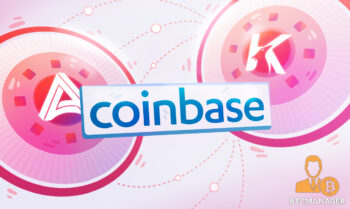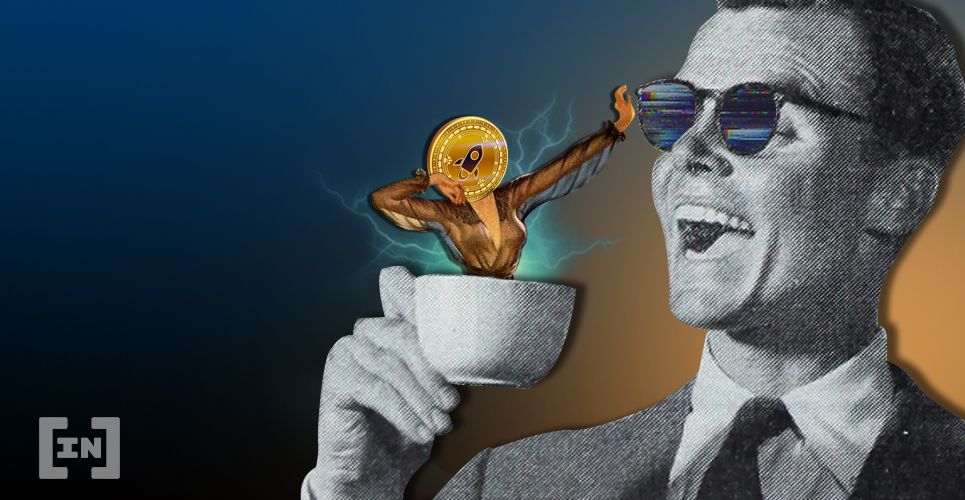2021-6-10 18:08 |
The crypto world’s gradual foray into the mainstream quickly accelerated this year. As interest in non-fungible tokens (NFTs) increased, so did the visibility of the rest of the space.
At the moment, the two prominent NFT use cases are collectible capsules and NFT art. Due to these more stagnant use cases, NFTs are met with skepticism by some. In fact, a report even appeared of one journalist’s “nightmare” process to obtain NFTs. Not to mention the exorbitant gas prices some face during NFT transactions.
Nonetheless, the criticism doesn’t seem to get in the way of ever more NFT drops and the NFT-ization of the different areas of people’s lives. As more practical use cases become visible and applicable to the wider public, the point made by skeptics become less relevent.
As we delve into the myriad of use cases for NFTs, it’s important to understand why they are valuable.
Before their development, it was difficult to create digital worth for assets or items. The reason being – it’s easy for anyone, even someone with little tech-savviness, to duplicate digital art, items, music, etc. Copy, paste, download.
Enter NFTs and the change of ownership authentication.
The art world and the NFTThere is no better place to begin than the art world. NFTs created new ways to auction pieces, giving space to emerging creators, and in many cases returning power to artists in terms of copyright infringements.
The main area of support NFTs provide to the art world is authenticating the scarcity and ownership of digital art pieces. Anyone can view or even copy authenticated artwork. However, when something has been NFT’d, there is proof that it isn’t an original.
At the beginning of the year, the reported net profits of NFT artwork came in at over $9 million for a single month.
Artists both emerging and those with sizable recognition jumped onto the NFT train. This includes Beeple’s artwork sold for $69 million and Rick and Morty NFT art, which raked in hundreds of thousands.
The NFT art craze also encouraged some of the world’s most prominent galleries and auction houses to join the space. Recently, Sotheby’s announced their first NFT auction, which was even paid for in crypto.
This is a great example of how art, although not a practical use case, is yet a bridge between the crypto space and mainstream consumers.
NFTs for gamersIt’s no surprise that NFTs have a practical use case in the gaming world. Since the crypto space began its move into the limelight, gaming has always been an avenue to observe its various use cases.
When it comes to NFTs, gamers are already familiar with digital assets and the worth assigned to items that aren’t always tangible. Additionally, gamers are pros at performing digital microtransactions within the given world in which they participate.
In blockchain-based games, with the implementation of NFTs, gamers can actually own the digital items they possess in the game.
It may yet be a bit of a mind trip for those unfamiliar with digital asset possession in games, but this is revolutionary for gamers and game developers.
Major partnerships have been formed to bridge the crypto and traditional gaming space, such as that between Atari and Enjin. They intend to create digital collectibles for gamers to have in their NFT vault as actual possessions beyond the game. Minecraft, a popular digital-universe game, has also adopted NFTs for digital land ownership.
NFTs disrupt the sports worldThe sports world is yet another sector that felt the impact of the NFT wave. This industry is rife with fans ready to jump on collectibles, i.e., collecting and trading baseball cards as a pastime. NFTs can be seen as a new version of this in some cases.
One example is the NBA team, the Golden State Warriors, releasing NFT collectibles of their championship ring and ticket stubs. Red Bull and blockchain partner Tezos also intends to utilize NFTs to create an immersive experience for clients during the upcoming 2021 Grand Prix.
Beyond collectibles, a Mexican soccer team turned a 1% stake of the team into an NFT. This example exhibits how NFTs can offer perks of ownership while overstepping future obligations in which traditional owners take part.
Ticketing made easierAnother facet of life that NFTs enhance comes with ticket sales. This is overarching to any area, be it sports, art, or music. According to a CNBC report, at least 12% of people get scammed while purchasing tickets of any kind.
NFTs are an excellent solution to make sure this is no longer possible. Upcoming platforms like Carbon intend to use NFTs as tickets to their exclusive events and talkbacks for users in their ecosystem. It will be nearly impossible for those not holding Carbon’s native token to hold said passes.
This is highly applicable to the aforementioned sports world. In fact, the Ukrainian football team Kiev Dynamo plan to sell match tickets as NFTs for their upcoming season.
The music industry makes noise for NFTsThe music industry is yet another space, which has already seen benefits from NFT implementation. Not only do NFTs solve issues for concert ticketing, as in previously mentioned examples, but they also help prevent royalty and copyright infringements that otherwise plague the industry.
Record label CEO Antz created a platform where NFTs are fraud-resistant concert tickets, artist setlists, and concert highlights. Independent artists such as the Kings of Leon plan to drop an entire forthcoming album as an NFT. Popular thrash metal band, Megadeath also minted a token to control their merch sales and connect with fans.
In addition, applications such as S!NG, are looking at ways to use NFTs to assist artists with intellectual property security. This application allows artists to immediately upload any thoughts, melodies, tunes, lyrics to the blockchain as an NFT. Thereby creating an immutable record for future copyright applications.
NFT assets IRLWhile so much NFT talk happens in the digital space, there are real-world, lesser known examples of use cases.
Real estate is a prime example of how NFTs can change the way we interact with property ownership. Recently Michael Arrington, the founder of TechCrunch, put his property up for sale as an NFT.
The company Arrington used for the sale, Propy, is a proponent of blockchain and crypto-based real estate endeavors and commented on the NFT transaction:
“… This first proof of concept can absolutely change the paradigm of homeownership. And right now, we’re creating a new way to transact home homes in the United States.”
In addition to the real estate space, physical items such as luxury jewelry have also been tokenized with NFTs. An Indonesia-based company created a token, In Bitcoin We Trust (IBWT), which entitles the owner to a physical diamond ring that can be exchanged via their platform.
Diamond sales as a whole have the potential to benefit from this technology. Authentication of ownership of such a valuable physical asset will make fraudulent resale difficult. With the attachment to physical items, owning the NFT could be seen as even more important to prove authenticatable ownership.
A bright NFT future aheadAs the Internet of Things continues to subsume, our reality and virtual spaces become more accessible than physical ones, the use cases of NFTs will multiply. The ways they are implemented into people’s lives now will be tiny compared with their future capabilities.
NFT are phenomenal, both in their capabilities and their invaluable role in making the decentralized space a reality for the masses. The limit to their use appears to be limited only by creators imaginations.
The post Looking Beyond the Hype — How NFT Use Cases Are Expanding appeared first on BeInCrypto.
origin »Bitcoin price in Telegram @btc_price_every_hour
Hype Token (HYPE) íà Currencies.ru
|
|



















